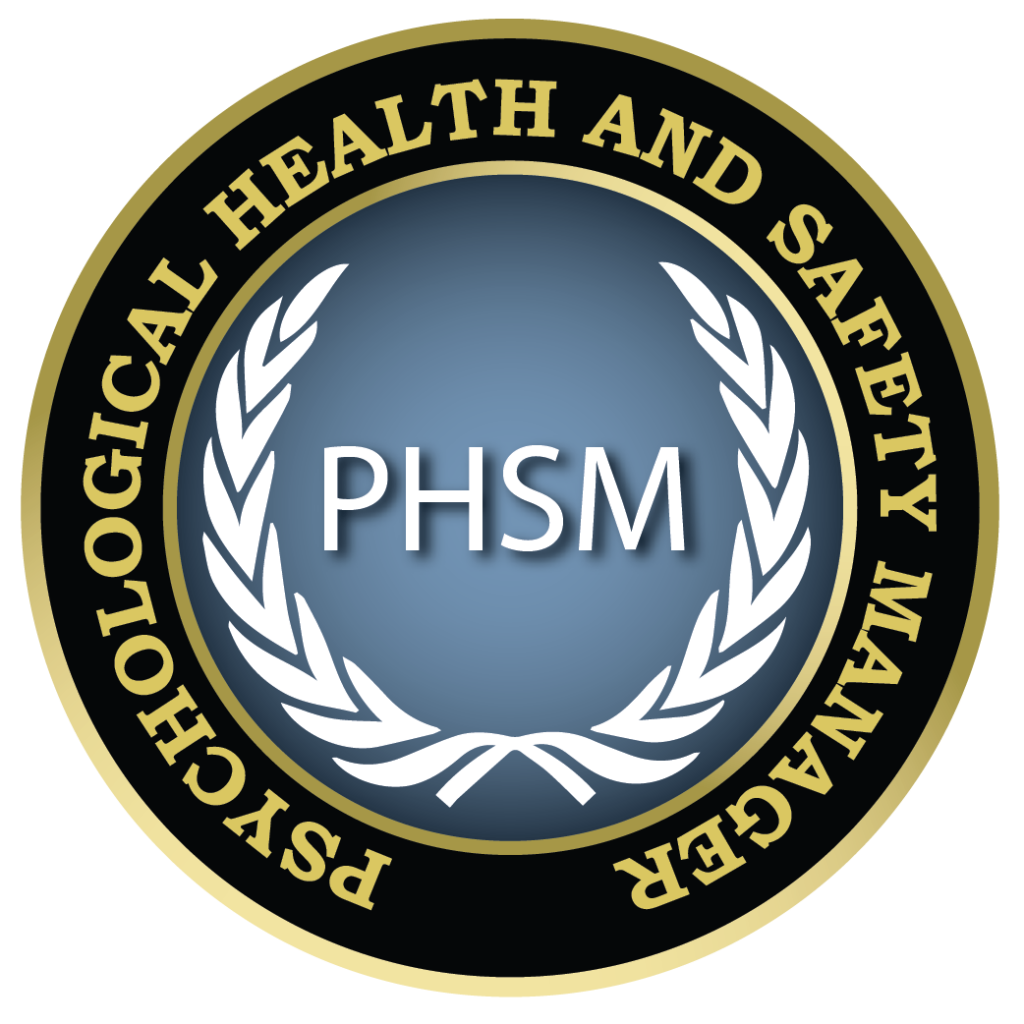Navigating the Challenges of Implementing a Psychological Health and Safety Program at Your Workplace

In today’s workplaces, Psychological Health and Safety (PHS) is as critical as traditional occupational health and safety. A well-implemented PHS program can protect employees from mental harm, enhance workplace morale, and improve productivity. However, achieving a fully integrated PHS program comes with its challenges. From workplace culture shifts to addressing geopolitical psychological risks, organizations must proactively strategize to ensure a supportive and resilient environment.

Understanding Psychological Health and Safety (PHS)
Psychological Health and Safety (PHS) is the practice of creating a work environment that protects employees from mental harm and promotes overall well-being. Unlike traditional occupational health and safety, which primarily focuses on physical risks, PHS aims to address workplace stressors, leadership dynamics, and cultural aspects that impact employees’ mental health.
A psychologically safe workplace has many moving parts, including work organization, interpersonal interactions, equipment, and the environment. All these factors can impact employees’ emotional systems, leading to increased stress levels and decreased engagement when not managed effectively. Research has shown that companies with strong PHS programs see improved productivity, decreased absenteeism, lower turnover rates, and higher employee satisfaction.

The Complexities of Implementing a PHS Program
One of the primary challenges in implementing a PHS program is ensuring it is tangible and measurable. Many initiatives fail because they lack clear mandates, structured evaluations, or long-term follow-ups. Just as occupational health and safety programs follow established standards and performance indicators, so too must PHS programs to be effective.
A well-designed PHS program should provide a clear understanding of psychosocial factors that influence employees’ well-being. Factors such as leadership style, workplace organization, and interpersonal interactions play a crucial role. Research indicates that engaged employees who feel supported by leadership are more innovative, productive, and committed to their organizations. On the other hand, poor leadership and negative workplace environments contribute to increased stress, turnover, and even injury claims.
The Emerging Geopolitical Psychological Risks Impacting Workers
Beyond internal workplace challenges, external geopolitical events are increasingly affecting employees’ mental well-being. Global tensions, economic instability, and security concerns create heightened stress levels, making it harder for employees to remain focused and engaged at work.

Geopolitical risks can impact workplaces in multiple ways:
- Economic instability can lead to job insecurity and heightened stress.
- Supply chain disruptions can increase workload pressures.
- Regulatory changes may require businesses to rapidly adjust policies, adding uncertainty.
- Psychological stress from global crises can exacerbate mental health concerns in employees.
Organizations cannot control external geopolitical factors, but they can prepare and support employees by integrating these considerations into their PHS programs. Implementing risk assessments, crisis-preparedness training, and trusted leadership development are key proactive measures to ensure employees feel safe and valued during uncertain times.

Strategies for Successfully Implementing a PHS Program
To address these challenges, organizations should follow a structured framework that allows for continuous evaluation and improvement of their PHS initiatives. The Plan-Do-Check-Act (PDCA) approach provides a roadmap for assessing workplace psychosocial risks and implementing proactive measures.
1. Conduct a Workplace Risk Assessment
Before launching a PHS program, organizations must conduct a comprehensive psychosocial risk assessment to identify key stressors and hazards within the workplace.
2. Train Leaders in Psychological Safety
Leadership style significantly impacts employees’ mental health. Command-and-control leadership models often lead to high-stress environments, increased turnover, and low morale. Organizations should invest in trusted leadership training to equip managers with the skills to foster open communication, trust, and psychological safety within teams.
3. Develop a Comprehensive Support System
Employees need access to mental health resources, including Employee Assistance Programs (EAPs), stress management workshops, and peer support networks. Providing these resources ensures employees have the tools to cope with workplace stress and external geopolitical anxieties.

4. Enhance Crisis Preparedness
Uncertainty from geopolitical risks can create anxiety in the workplace. Employers must develop crisis response plans that prepare managers, HR personnel, and safety professionals to handle stress-related incidents effectively. Crisis-ready organizations are better equipped to maintain morale and stability during global disruptions.
5. Foster a Culture of Continuous Improvement
Organizations must regularly review and adjust their PHS programs to address emerging risks and challenges. Employee feedback loops, regular pulse surveys, and leadership evaluations ensure the program remains effective and aligned with workforce needs.

How NASP’s Psychological Health and Safety Manager (PHSM) Course Can Help
The complexities of implementing a PHS program and addressing emerging psychological risks demand specialized training. The Psychological Health and Safety Manager (PHSM) Course from NASP is designed to equip safety professionals with the necessary skills to develop and manage a comprehensive PHS program.
By enrolling in this course, you will learn:
- How to define and mitigate workplace psychosocial risks
- How to apply international PHS standards like those from OSHA, NIOSH, and ISO
- How to conduct workplace assessments to identify and manage psychological hazards
- How to train leaders in psychological safety best practices
- How to develop crisis response strategies to address geopolitical risks

Exclusive Limited-Time Offer: 20% Discount Until March 31st
For a limited time, NASP is offering an introductory 20% discount on the PHSM course. The regular price of $1795 is now available at a reduced rate until the end of March.
Take action today to equip yourself with the expertise needed to create a psychologically safe workplace. Enroll now and invest in your employees’ well-being and organizational success.
Blog Posts
Latest Posts
Related Posts




